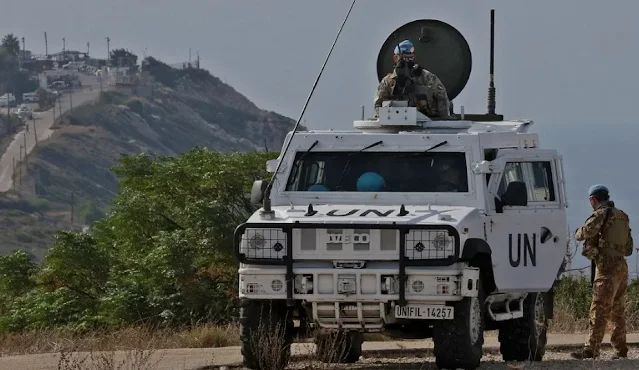 |
| United Nations peacekeeping force in Lebanon (UNIFIL) vehicles patrol the Lebanese southern coastal area of Naqura. (AFP) |
The accusations, which did not receive an immediate response from Beirut, Tehran or the United Nations Interim Force in Lebanon (UNIFIL) come as Israeli-Iranian tensions soar. In what he called the first public disclosure of the incident, Israeli Defense Minister Benny Gantz accused Hezbollah of launching a cyber attack.
Iranian security agencies in collaboration with Hezbollah (recently) launched a cyber operation with the aim of stealing material about UNIFIL activities and their deployment in the region, for use by Hezbollah. This is another direct attack by Iran and Hezbollah against the Lebanese people and the stability of Lebanon," he told a cyber conference at Tel Aviv University, without elaborating.
Dispute Founded in 1978, UNIFIL patrols Lebanon's southern border. The troops were tasked with monitoring the ceasefire that ended the last war between Hezbollah and Israel in 2006. Israel accuses Hezbollah gunmen of orchestrating clandestine positions on the border in conflict with UNIFIL. Meanwhile Lebanese officials said Israel was continuing Air Force flights on their territory in violation of the ceasefire.
Gantz said the Iranian Revolutionary Guard Corps cyber unit called "Shahid Kaveh" had "conducted research to damage ships, gas stations and industrial plants in several Western countries including the UK, US, France and Israel.
Sky News, which reported on similar allegations last year, said Iran's embassy in London had not responded to them. Gantz hinted that Israel - which is widely believed to have waged a cyber war on Iran's nuclear facilities and other infrastructure - could retaliate physically against enemy hackers.
